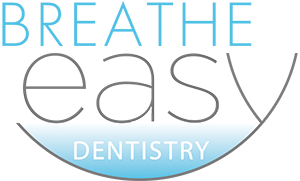 I was recently reading a book “Sleep Medicine for Dentists” by G. Lavigne and P. Cistuli which state that obstructive sleep apnea cases often present with centrally obese individuals (large bellies) with accompanying sleepiness.
I was recently reading a book “Sleep Medicine for Dentists” by G. Lavigne and P. Cistuli which state that obstructive sleep apnea cases often present with centrally obese individuals (large bellies) with accompanying sleepiness.
When we look closer at these individuals we see compromises in cardiometabolic and neurobehavioral function. What this means is that nerves, behavior, and metabolic changes are happening in these individuals, not just difficulties in breathing. These abnormalities include high blood pressure, higher cholesterol, higher sugar content in the blood (prediabetic), excessive daytime sleepiness, altered mood states, and problems with remembering things. Both clinical and community based studies suggest that obstructive sleep apnea (airways become collapse during sleep) plays a causative role in worsening these problems and growing evidence suggests that treatment of the airway can improve all of these area’s. Population studies also suggest that we can reduce many disease processes and even death with treatment of obstructive sleep apnea.
One of the most important points that everyone is concerned with is brain function and memory. The impact of OSA they believe comes from a combination of sleep fragmentation and intermittent absence of breathing which causes a lowering of the bodies oxygen levels during sleep. These produce the common symptoms of sleepiness, and qualities of mental flexibility, planning, and problem solving.
The literature to date shows that treatment of OSA reduces sleepiness, however, some studies suggest that recovery of the cognitive impairment is incomplete after CPAP treatment for OSA. The authors feel that it may be due to suboptimal treatment with CPAP or they even raise the possibility that it arises from permanent injury to the brain caused by the chronic intermittent decrease in the oxygen levels in the body.
Many times a CPAP machine to help you breath is not necessary if you have an appliance made for your mouth that moves the jaw and tongue forward which can be adjusted to maintain an open airway alleviating the OSA confirmed by a follow up sleep study.
These problems are familial in nature and we see the evidence present when we look at cohort studies so if you are having problems in this area or family members have these difficulties, you and your family members should consider having a sleep study done to rule out the possibility of OSA.



